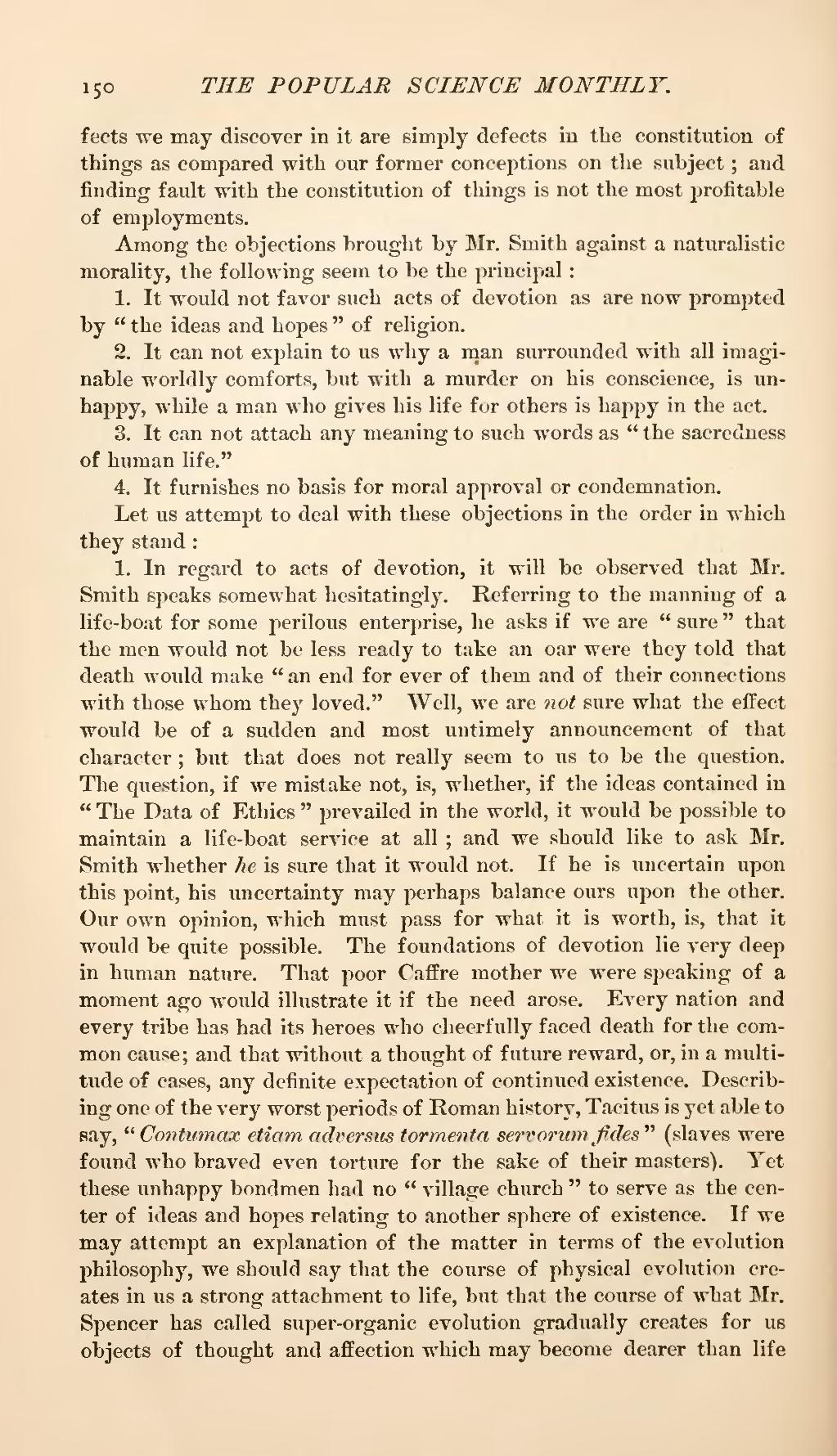fects we may discover in it are simply defects in the constitution of things as compared with our former conceptions on the subject; and finding fault with the constitution of things is not the most profitable of employments.
Among the objections brought by Mr. Smith against a naturalistic morality, the following seem to be the principal:
1. It would not favor such acts of devotion as are now prompted by "the ideas and hopes" of religion.
2. It can not explain to us why a man surrounded with all imaginable worldly comforts, but with a murder on his conscience, is unhappy, while a man who gives his life for others is happy in the act.
3. It can not attach any meaning to such words as "the sacredness of human life."
4. It furnishes no basis for moral approval or condemnation.
Let us attempt to deal with these objections in the order in which they stand:
1. In regard to acts of devotion, it will be observed that Mr. Smith speaks somewhat hesitatingly. Referring to the manning of a life-boat for some perilous enterprise, he asks if we are "sure" that the men would not be less ready to take an oar were they told that death would make "an end for ever of them and of their connections with those whom they loved." Well, we are not sure what the effect would be of a sudden and most untimely announcement of that character; but that does not really seem to us to be the question. The question, if we mistake not, is, whether, if the ideas contained in "The Data of Ethics" prevailed in the world, it would be possible to maintain a life-boat service at all; and we should like to ask Mr. Smith whether he is sure that it would not. If he is uncertain upon this point, his uncertainty may perhaps balance ours upon the other. Our own opinion, which must pass for what it is worth, is, that it would be quite possible. The foundations of devotion lie very deep in human nature. That poor Caffre mother we were speaking of a moment ago would illustrate it if the need arose. Every nation and every tribe has had its heroes who cheerfully faced death for the common cause; and that without a thought of future reward, or, in a multitude of cases, any definite expectation of continued existence. Describing one of the very worst periods of Roman history, Tacitus is yet able to say, "Contumax etiam adversus tormenta servorum fides" (slaves were found who braved even torture for the sake of their masters). Yet these unhappy bondmen had no "village church" to serve as the center of ideas and hopes relating to another sphere of existence. If we may attempt an explanation of the matter in terms of the evolution philosophy, we should say that the course of physical evolution creates in us a strong attachment to life, but that the course of what Mr. Spencer has called super-organic evolution gradually creates for us objects of thought and affection which may become dearer than life

